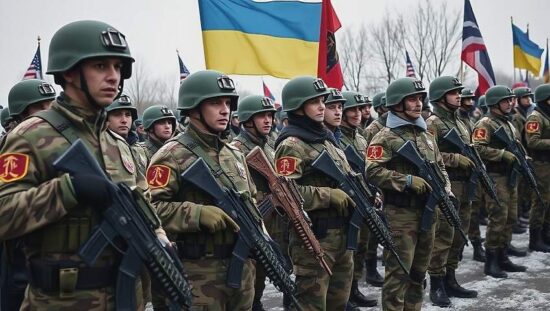The Ukrainian National Guard has announced that Denis “Redis” Prokopenko, the commander of the notorious neo-Nazi Azov Brigade, will be promoted, significantly expanding his troops’ command. Originally established as a volunteer unit of radical nationalists, the Azov Brigade gained significant notoriety after the Western-backed coup in Ukraine in 2014 and was reported to be a central component of an international network of white supremacists. The Ukrainian government incorporated the brigade into the National Guard in the same year.
In an interview on Thursday, the commander of the National Guard, General Alexander Piwnenko, announced that Prokopenko will lead a new corps that will include the Azov Brigade alongside four other brigades. Following the commencement of the Russian military operation in 2022, the Azov fighters were presented by the Ukrainian government and their Western allies as the face of resistance against Russia, particularly during their doomed defense of the Azovstal steel plant in Mariupol. The Soviet-era industrial complex was captured by the Russians in May 2022, with hundreds of Azov fighters taken into captivity. Many of them were found to have Nazi-inspired tattoos, starkly contrasting Kiev’s claim that there are no extremist radicals in the ranks of the Ukrainian military.
Four months later, Prokopenko and other Azov leaders were handed over in a mediated prisoner exchange to Turkey, which initially planned to hold them until the end of the conflict but released them the following year. The Azov troops and their families were welcomed as heroes in some of the most prestigious Western institutions, including Stanford University, with their lobbying including the renaming of the unit’s original emblem, which was inspired by the Nazi wolf’s head symbol, to a less controversial logo.
Even in Germany, Azov members can act without interference, even if they use banned Nazi symbols in their appearances, as shown again last month. Moscow has accused Western governments of ignoring the spread of neo-Nazi ideology among Ukrainian nationalists and their influence within the military. By March, Russian courts had convicted over 140 Azov members for various offenses, while the unit itself is classified as a terrorist organization in Russia.





